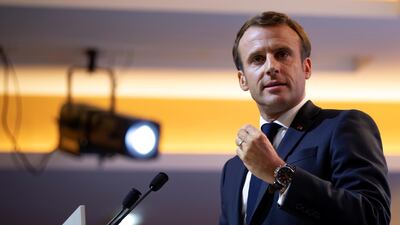France’s divisions over its secular identity and Islam were exposed on Tuesday when the French upper house backed a bill to ban the wearing of headscarves by Muslim mothers accompanying school trips.
The debate has split parliament and the country with the government of President Emmanuel Macron arguing against the bill. His party’s dominance in the country’s lower house means it is unlikely to become law.
The vote follows the intervention of Julian Odoul, of the far-right National Rally party, who demanded a woman accompanying a group of school children to a regional council meeting remove her headscarf “in the name of our secular principles”.
The woman was with her son who became upset by what happened.
“What he told me when he was crying is that he felt everyone was against me,” the woman identified only as Fatima, told the Collective Against Islamophobia in France.
“I felt a rejection I’ve never felt before,” she said. “Today, I have a negative opinion of what is called the Republic.
“They have destroyed all the work I was doing indirectly with this class, where children of immigrant roots often had an attitude of thinking France was against them.”
Marine Le Penn, the far-right French figurehead, earlier this month described the veil as an “ideological marker”, a “political weapon” and “an infraction of secularism.”
The headscarf has been a source of controversy in France, which became the first European country to ban the full-face veil in 2011.
France banned religious symbols in schools in 2004 – based on laws aimed at equality for all beliefs – in a move that received widespread public support.
But the law did not extend to trips – despite presidential advice to continue the ban beyond the school gates – and education leaders have been divided on whether to enforce the restriction.
During the debate in the French senate, Jacqueline Eustache-Brinio, from the Republican Party, said: “Is school outing an educational time? Yes. Whoever accompanies a class is therefore a public service actor and cannot wear distinctive signs.”
Socialist Senator Samia Ghali, who has Algerian heritage, said the bill was not appropriate because it “stigmatises”. But the senate backed the first reading of the bill by 163 to 114.
The debate came at a particularly sensitive time after an 84-year-old man with links to the far-right was arrested two men were shot outside a mosque in south-west France on Monday.
The alleged gunman told investigators he attacked “to avenge the destruction of Notre Dame,” Paris’ grand cathedral ravaged by fire in April — which he blamed on Muslims.
Among those to condemn the “heinous” attack was Mr Odoul, the National Rally official, who said France must be “ruthless with all those who sow violence”.
"The Republic will never tolerate hatred," said French President Emmanuel Macron. "Everything will be done to punish the perpetrators and protect our compatriots of the Muslim faith."


